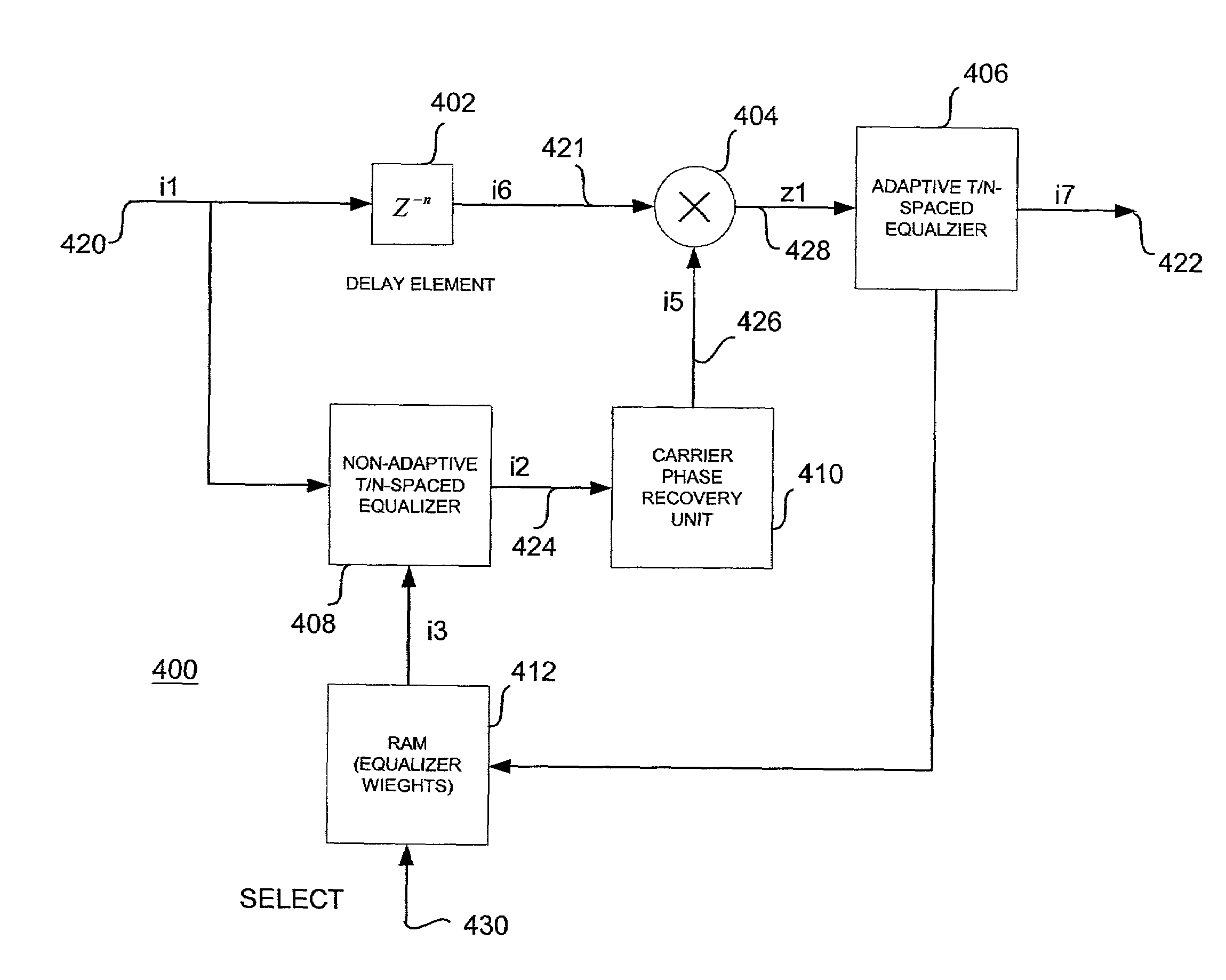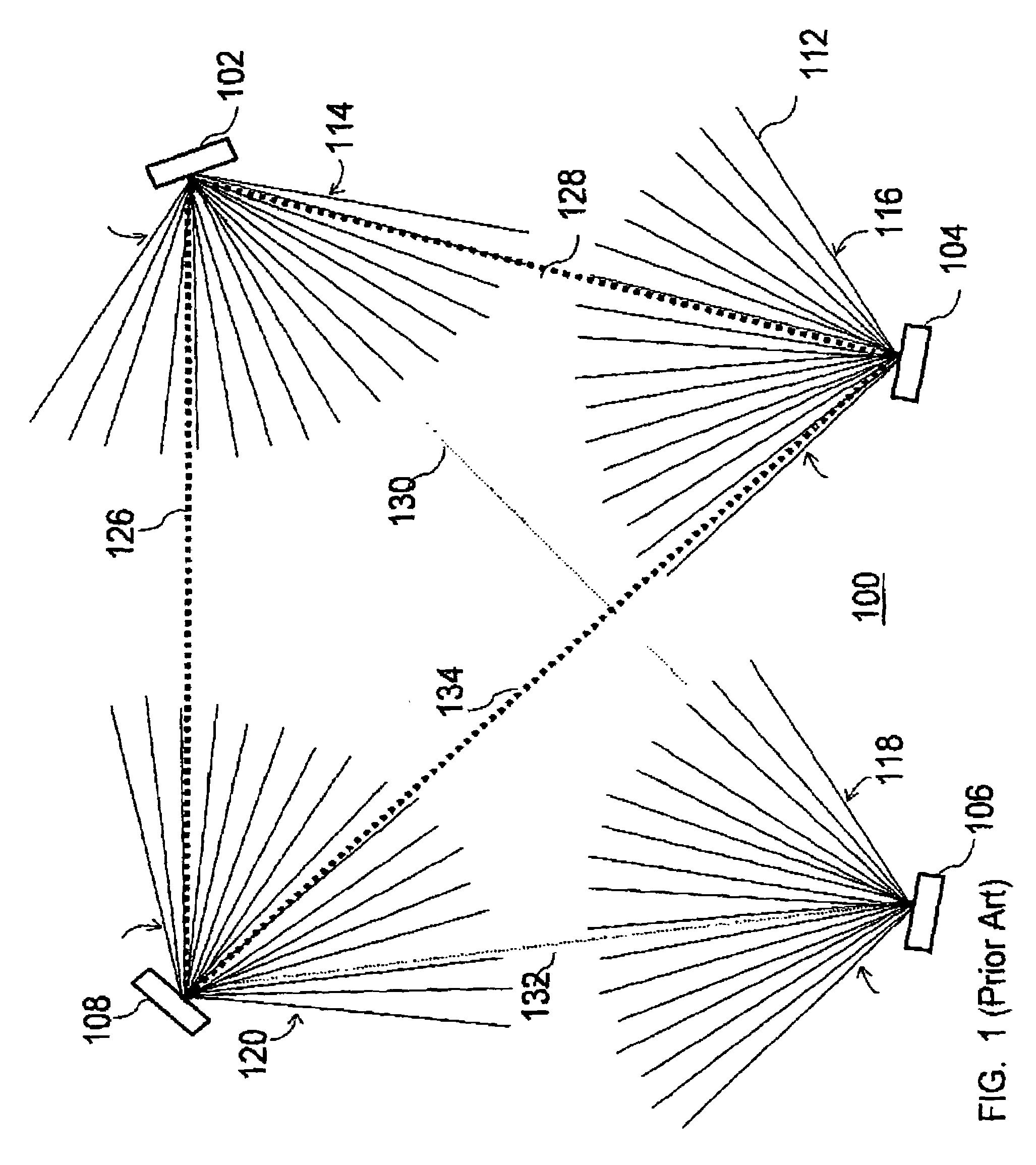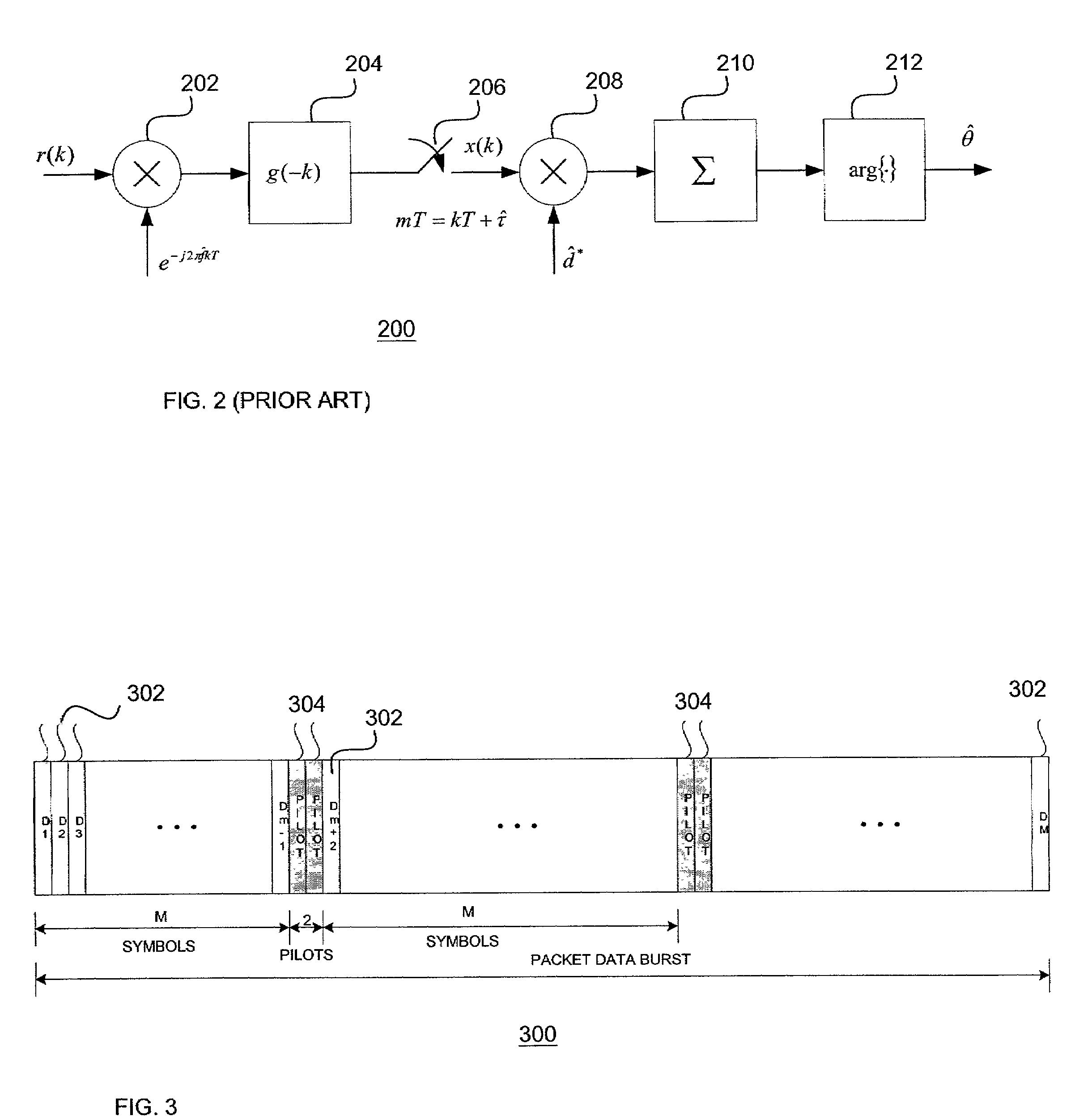Carrier phase recovery system for adaptive burst modems and link hopping radio networks
a carrier phase recovery and modem technology, applied in the field of carrier phase recovery system for adaptive burst modems and link hopping radio networks, can solve the problems of carrier phase estimation, complicated cross-talk interference problem, and difficulty in synchronization at low values of signal-to-noise ratio (snr)
- Summary
- Abstract
- Description
- Claims
- Application Information
AI Technical Summary
Benefits of technology
Problems solved by technology
Method used
Image
Examples
Embodiment Construction
[0030]This invention relates to the carrier phase recovery subsystem for a link-hopping wireless mesh network topology used for Broadband Wireless Access (BWA) networks. Such networks operate in different spectra such as in the Local Multi-point Distributed Service (LMDS) band at 28 GHz. The modem of a node in such a network is capable of fast link-hopping from one link to another over slow time-varying channels. That is, the channel is quasi-static from burst to burst for any given link. A carrier phase estimation technique is provided for a coherent detection of high-speed short-burst multi-link hopping mesh network topology using, for example, fixed Broadband Wireless Access (BWA).
[0031]Fading in fixed line-of-sight (LOS) channels, although mild compared to mobile systems, provides disruptive effects for phase tracking. The use of closed-loop systems, such as phase-locked loops or modified Costas phase trackers, is not appropriate for burst modem applications. In these environmen...
PUM
 Login to View More
Login to View More Abstract
Description
Claims
Application Information
 Login to View More
Login to View More - R&D
- Intellectual Property
- Life Sciences
- Materials
- Tech Scout
- Unparalleled Data Quality
- Higher Quality Content
- 60% Fewer Hallucinations
Browse by: Latest US Patents, China's latest patents, Technical Efficacy Thesaurus, Application Domain, Technology Topic, Popular Technical Reports.
© 2025 PatSnap. All rights reserved.Legal|Privacy policy|Modern Slavery Act Transparency Statement|Sitemap|About US| Contact US: help@patsnap.com



